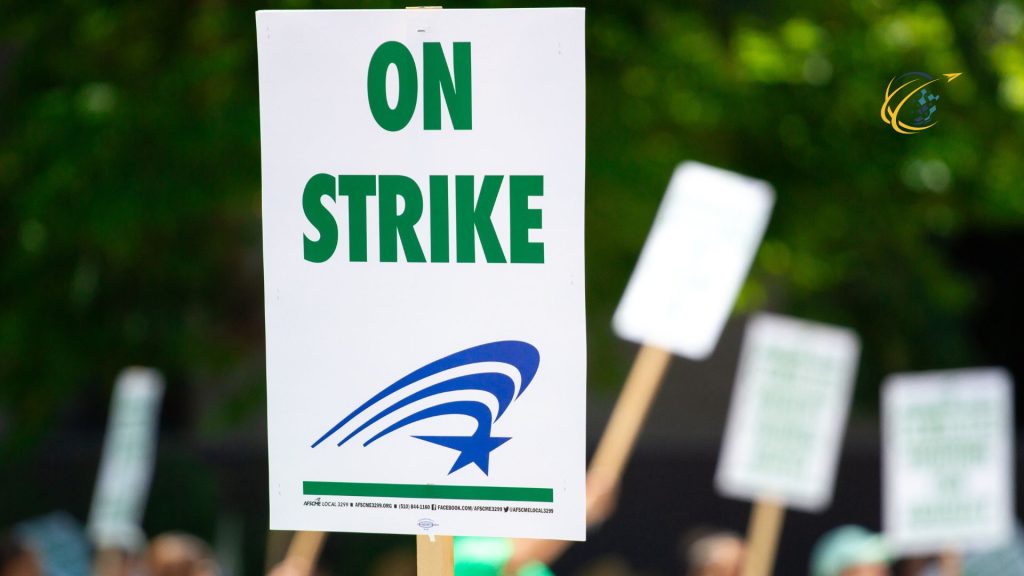Navigating the complexities of labor unions can be a challenging task for any employer. Dealing with Labor Unions requires a strategic approach. It also requires effective communication and a deep understanding of both legal obligations and employee relations. While unions can present certain challenges, they also offer opportunities for fostering a more engaged and satisfied workforce. By understanding the dynamics of labor unions, employers can manage these relationships effectively and create a positive work environment.
Understanding Labor Unions
Labor unions are organizations that represent employees in negotiations with employers. These negotiations, often referred to as collective bargaining, focus on issues such as wages, working conditions, benefits, and job security. The primary goal of a labor union is to protect the interests of its members. They also ensure that their rights are upheld in the workplace. For employers, dealing with labor unions involves understanding the union’s role. It also requires an understanding of the collective bargaining process and the legal framework governing these interactions.
The relationship between employers and labor unions can vary significantly. This depends on the industry, the size of the workforce, and the specific issues at hand. In some cases, unions and employers may have a collaborative relationship, working together to address employee concerns and improve workplace conditions. In other instances, the relationship may be more adversarial, particularly if there are disputes over wages or working conditions. Regardless of the nature of the relationship, dealing with labor unions requires a proactive approach and a commitment to open communication.
Legal Considerations in Dealing with Labor Unions
When dealing with labor unions, employers must be aware of their legal obligations under labor laws. In the United States, the National Labor Relations Act (NLRA) governs the rights of employees to organize and engage in collective bargaining. This law also outlines the rights and responsibilities of employers when dealing with labor unions. Understanding the NLRA and other relevant labor laws is essential for avoiding legal pitfalls and ensuring compliance.
One of the key legal obligations for employers is to engage in good faith bargaining with the union. This means that both parties must make a genuine effort to reach an agreement on the terms of employment. Employers cannot simply refuse to negotiate or attempt to undermine the union’s authority. Instead, they must come to the table prepared to discuss issues and work toward a mutually beneficial agreement.
In addition to good faith bargaining, employers must also be mindful of their communication with employees during union negotiations. The NLRA prohibits employers from engaging in unfair labor practices, such as threatening employees, interfering with union activities, or offering incentives to discourage union membership. Employers should ensure that their actions and communications are consistent with labor laws and that they are not engaging in any behavior that could be perceived as anti-union.
Strategies for Effective Union Negotiations
Effective negotiation is a critical component of dealing with labor unions. The goal of these negotiations is to reach an agreement that satisfies both the employer and the union, while also promoting a positive work environment. To achieve this, employers should approach negotiations with a clear strategy and a willingness to listen to the union’s concerns.
One important strategy is to prepare thoroughly before entering negotiations. Employers should review the current labor agreement, analyze industry standards, and gather data on employee compensation and benefits. This information provides a strong foundation for negotiations and helps employers make informed decisions. Additionally, having a clear understanding of the company’s financial situation and long-term goals is essential for determining what concessions can be made during negotiations.
Another key strategy is to maintain open and respectful communication with the union throughout the negotiation process. This involves actively listening to the union’s concerns, acknowledging their perspective, and providing clear explanations for the company’s position. Employers should aim to build trust and foster a collaborative atmosphere, rather than viewing negotiations as a confrontational process. By approaching negotiations with a spirit of cooperation, employers can often find common ground and reach a mutually beneficial agreement.
Flexibility is also crucial in union negotiations. While it is important to have clear objectives, employers should be willing to consider alternative solutions and compromises. In some cases, it may be necessary to make concessions in one area in order to achieve desired outcomes in another. Being open to different approaches can help move negotiations forward and increase the likelihood of reaching an agreement.
Managing Unionized Workforces
Dealing with labor unions extends beyond the negotiation process. Once an agreement is reached, employers must focus on managing a unionized workforce effectively. This involves ensuring that the terms of the labor agreement are implemented and maintained, as well as fostering positive employee relations.
One of the most important aspects of managing a unionized workforce is maintaining clear and consistent communication. Employers should keep employees informed about any changes to policies or procedures and provide regular updates on the company’s performance. Transparent communication helps build trust and can prevent misunderstandings or grievances from escalating.
Another key aspect of managing unionized employees is addressing grievances promptly and fairly. Labor agreements typically include a grievance procedure, which outlines the steps employees can take if they have a complaint. Employers should follow this procedure closely, treating each grievance with the seriousness it deserves. Resolving grievances quickly and effectively not only helps maintain positive employee relations but also demonstrates the employer’s commitment to upholding the labor agreement.
Additionally, employers should focus on maintaining a positive workplace culture. This includes recognizing and rewarding employee contributions, providing opportunities for professional development, and promoting a healthy work-life balance. A positive work environment can reduce the likelihood of conflicts and improve overall employee satisfaction, which benefits both the employees and the company.
Challenges in Dealing with Labor Unions
While there are many benefits to maintaining strong relationships with labor unions, employers may also face challenges in this area. One common challenge is managing the potential for strikes or work stoppages. Strikes can be costly for both the employer and the employees, and they can disrupt operations significantly. To mitigate this risk, employers should engage in proactive communication with the union and work to address concerns before they escalate.
Another challenge is balancing the needs of unionized employees with those of non-unionized employees. In some cases, unions may negotiate benefits or terms that are not extended to the entire workforce, leading to potential tensions. Employers should strive to maintain fairness and consistency in their policies and ensure that all employees feel valued and respected.
Finally, employers may face challenges related to the cost of labor agreements. Union negotiations can result in higher wages, increased benefits, or changes to work conditions, all of which can impact the company’s bottom line. To manage these costs, employers should carefully analyze the financial implications of any proposed changes and seek to find solutions that are sustainable for the long term. Consultants and labor experts can be called upon to assist in these dealings.
Dealing with Labor Unions is a complex and multifaceted aspect of managing a workforce. By understanding the legal framework, employing effective negotiation strategies, and maintaining positive relationships with unionized employees, employers can navigate this area successfully. While challenges may arise, proactive communication, flexibility, and a commitment to fair practices can help employers build strong and productive relationships with labor unions. Ultimately, a collaborative approach to dealing with labor unions can lead to a more engaged and satisfied workforce, which benefits both the employees and the organization.


